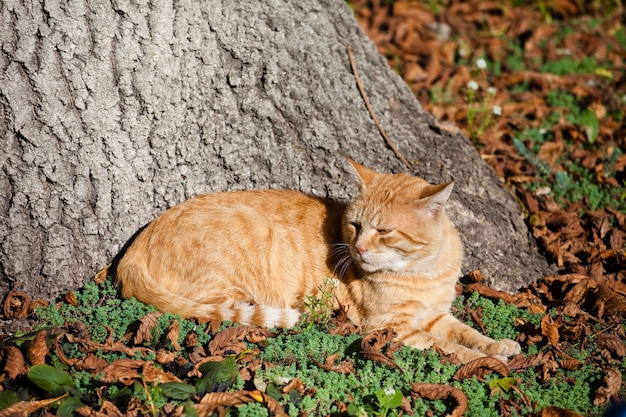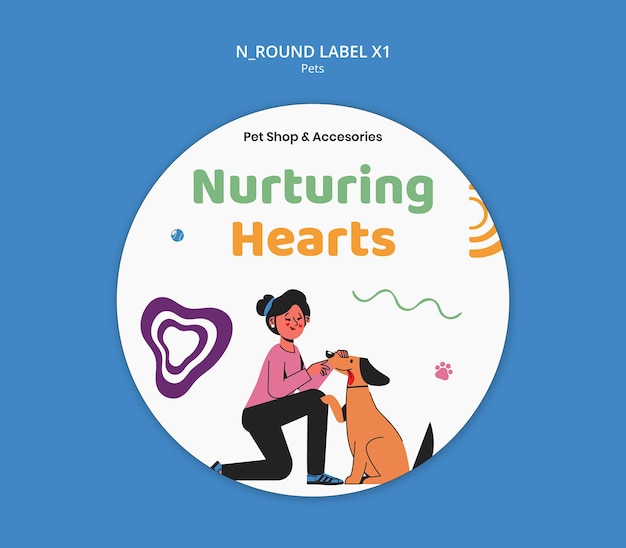Managing Pet Allergies in New Orleans' Humid Fall Climate

Managing Pet Allergies in New Orleans' Humid Fall Climate
As September arrives in New Orleans, the familiar warmth and humidity linger, bringing with them a unique set of challenges for pets prone to allergies. If you have noticed your dog or cat scratching more than usual, developing irritated skin, or showing signs of discomfort as the seasons change, you are not alone. Pet allergies in New Orleans are common during the humid fall months, thanks to a perfect storm of environmental allergens, moisture, and regional vegetation. At Ark Animal Hospital, located at 4211 Jefferson Highway, Jefferson, LA 70121, our team of veterinarians specializes in diagnosing and managing seasonal allergies in pets so your furry family members can enjoy a comfortable autumn.
In this post, we will guide you through the signs of pet allergies to watch for, why these issues are more prevalent in our local climate, and what you can do to help your pet feel their best. We will also highlight how our expertise in dermatology and internal medicine can make a difference for your pet’s comfort during this challenging time. If you are searching for a "vet near me" who understands the specific needs of pets in Jefferson and surrounding communities, Ark Animal Hospital is here to help you with all aspects of allergy care and prevention.
Recognizing the Signs of Pet Allergies in New Orleans
Knowing when your pet may be suffering from allergies is the first step toward relief. Key symptoms of pet allergies in New Orleans include persistent scratching, licking, or chewing at the skin, especially around the paws, belly, and ears. You might also notice red or inflamed skin, hair loss in patches, or the development of sores and scabs. Some pets experience frequent ear infections or shake their heads repeatedly due to discomfort, while others may sneeze, have watery eyes, or even show mild coughing. Digestive issues, such as vomiting or soft stools, can also occur in pets with certain types of allergies.
Seasonal allergies in pets often become more noticeable when pollen and mold levels rise in the fall. If your pet seems fine during other times of year but develops these issues as the weather shifts, environmental allergens could be to blame. Because many of these signs can mimic other health conditions, it is important to have your pet evaluated by a veterinary professional to determine the exact cause and develop an effective treatment plan.
Why Are Pet Allergies So Common in Our Humid Fall Climate?
New Orleans’ unique blend of high humidity, warm temperatures, and abundant plant life creates an ideal environment for allergens to thrive. In the fall, grasses, weeds, and molds release large amounts of pollen and spores into the air. The moisture in our region allows mold to flourish both outdoors and inside homes, adding to the allergen load. Pets walking through damp grass or spending time outdoors are exposed to these environmental triggers, which can stick to their fur and skin, leading to ongoing irritation.
Beyond environmental allergens, the humidity also promotes the growth of dust mites and can worsen flea infestations. Flea allergy dermatitis is especially problematic in our area, as a single bite can trigger severe itching and inflammation in sensitive pets. When combined with other allergens, the result can be a perfect storm of discomfort for both dogs and cats.
At Ark Animal Hospital, we understand the unique interplay between local climate and pet allergies. Our dermatology services are designed specifically to address these issues, using advanced diagnostics to pinpoint what is causing your pet’s symptoms and develop a plan tailored for life in New Orleans.
Understanding the Different Types of Pet Allergies
Pet allergies can be grouped into several categories. Environmental allergies, often referred to as atopic dermatitis, are triggered by pollen, mold, dust mites, and similar particles found in the environment. Flea allergies are caused by the saliva of fleas and can cause intense reactions even with minimal exposure. Food allergies are less common but can contribute to skin and digestive symptoms, making diagnosis more complex. Recognizing these different types allows our veterinary team to create the right approach for your pet.
How We Diagnose and Manage Seasonal Allergies in Pets
When you bring your pet to Ark Animal Hospital for allergy concerns, our veterinary team will begin with a thorough physical examination and a detailed history of your pet’s symptoms. Diagnosing pet allergies in New Orleans often involves ruling out other common causes of itching and skin problems, such as infections or parasites. Depending on what we find, diagnostics may include skin scrapings, cytology, or blood tests to identify underlying infections or evidence of allergic response.
For many pets, allergy testing may be recommended to determine specific environmental triggers. Once we understand what is causing your pet’s discomfort, our internal medicine expertise comes into play. Treatment approaches involve a combination of therapies such as medicated baths to remove allergens from the skin, prescription medications to reduce inflammation and itching, and topical treatments to promote healing of irritated areas. In pets with chronic allergies, we may recommend immunotherapy or long-term management strategies to reduce sensitivity over time.
Managing seasonal allergies in pets is rarely a one-size-fits-all process. Some pets respond well to simple changes in their environment, while others require ongoing medical support. Our team will work closely with you to monitor your pet’s progress and adjust treatment as needed, ensuring the best possible quality of life for your companion.
Preventing Allergic Flares at Home: Practical Tips for Pet Owners
While professional care is essential for severe cases, there are important steps you can take at home to help reduce allergy symptoms in your pet. Bathing your dog or cat regularly with a gentle, veterinary-recommended shampoo can help remove pollen and mold spores from their coat, minimizing exposure to environmental allergens. Wiping your pet’s paws and belly with a damp cloth after outdoor walks can also be effective, especially during peak pollen times.
Keeping your home environment clean is another key step; frequent vacuuming with a HEPA filter, washing pet bedding in hot water, and using air purifiers can limit indoor allergens. If your pet suffers from flea allergies, maintaining regular flea prevention is critical, as even indoor pets can be exposed to fleas brought in from outside. For pets with suspected food allergies, our veterinary team can guide you through a food elimination trial to identify problematic ingredients.
Small changes, such as limiting time outdoors during high pollen counts or choosing walks during less humid parts of the day, can also make a difference. If you are seeking advice on seasonal allergies in pets or want to know more about preventive care options, our team at Ark Animal Hospital is always available to help.
When Should You Seek Veterinary Care for Pet Allergies?
It is important to know when home care is not enough and professional help is needed. If your pet’s itching is severe, leading to raw skin, open sores, or hair loss, or if you notice signs of infection such as odor, swelling, or discharge, a veterinary visit is essential. Recurrent ear infections, ongoing digestive issues, or significant changes in your pet’s behavior or appetite also warrant prompt attention.
If you are unsure whether your pet’s symptoms are related to allergies or another health problem, scheduling a comprehensive exam is the best way to ensure an accurate diagnosis and effective treatment. Our veterinarians at Ark Animal Hospital are equipped to handle all aspects of pet allergies in New Orleans and can provide both immediate relief and long-term management strategies to keep your pet comfortable.
We are proud to serve Jefferson and surrounding communities, and we encourage you to reach out whenever you have concerns about your pet’s health. If your pet requires urgent attention or develops sudden, severe symptoms, you can also explore our emergency veterinary care options for peace of mind.
Keeping Your Pet Comfortable This Fall: Trust Ark Animal Hospital
Managing pet allergies in New Orleans’ humid fall climate can feel overwhelming, but you do not have to navigate it alone. By recognizing the signs of seasonal allergies in pets, understanding the impact of our local environment, and taking preventive steps at home, you can help your dog or cat enjoy a happier, healthier autumn.
At Ark Animal Hospital, we combine advanced dermatology and internal medicine expertise to deliver customized care for every pet. Whether you are searching for "quality veterinary services near me" or simply need a trusted partner to guide you through allergy season, our team of veterinarians is here to support you every step of the way. If you are ready to schedule an appointment or have questions about pet allergies in New Orleans, call us at (504) 834-0906 or visit our 4211 Jefferson Highway, Jefferson, LA 70121 location today.
To learn more about our specialized dermatology services for pets or explore options for managing internal conditions, our team is always here to assist. Your pet’s comfort and wellbeing are our top priorities, and we are committed to being the best vet near me for Jefferson and surrounding communities.
This blog is intended for informational purposes only and does not replace professional veterinary advice. If you have concerns about your pet’s health, please schedule an appointment with a qualified veterinarian.



















